Lefty
Frizzell
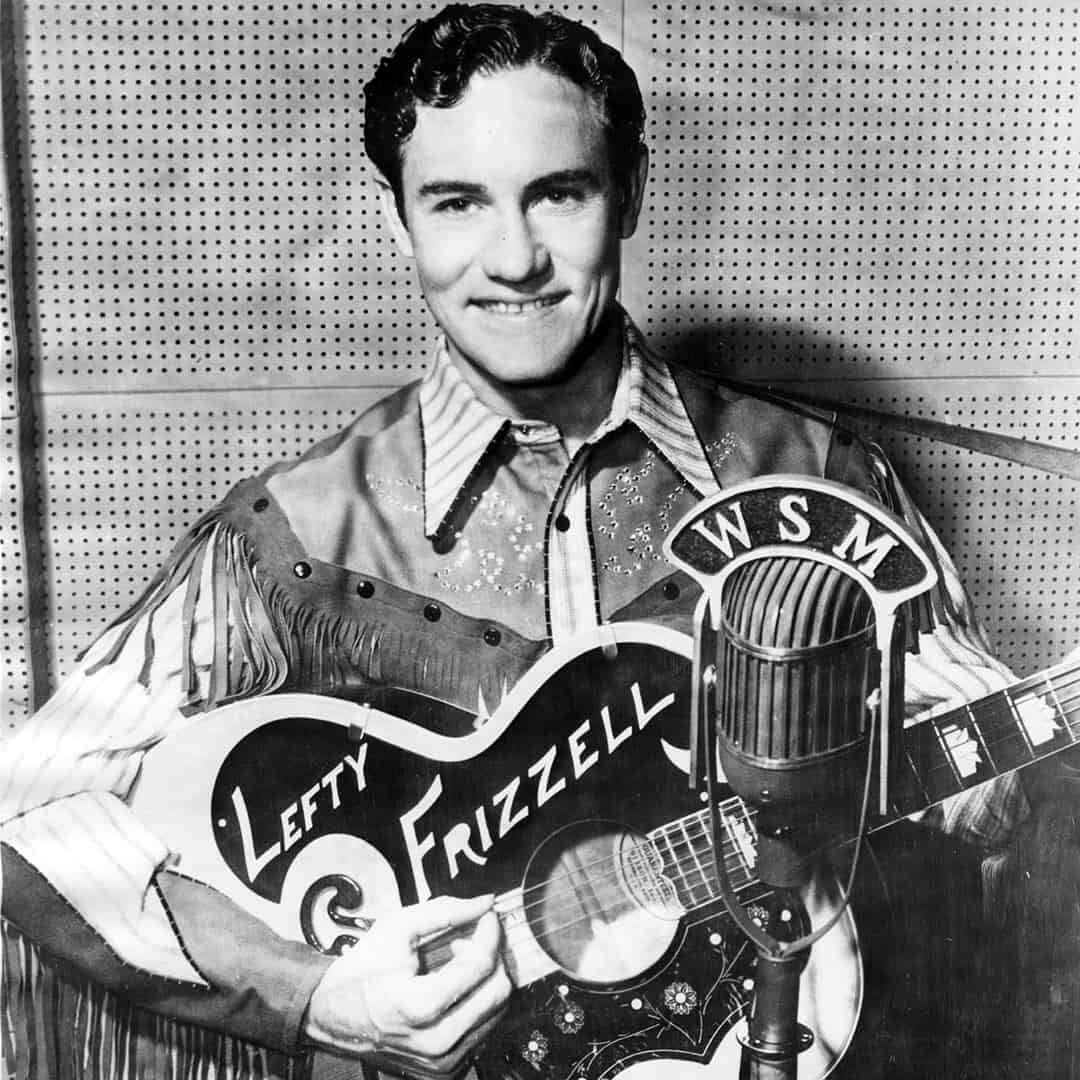
-
Inducted1982
-
Born
March 31, 1928
-
Died
July 19, 1975
-
Birthplace
Corsicana, Texas
Described by Merle Haggard as “the most unique thing that ever happened to country music,” Lefty Frizzell was one of the most influential singers in the genre’s history. A supreme vocal stylist, he introduced an intimate, vowel-bending style of singing that has been internalized by countless younger performers in the years since he burst to stardom in 1950. Besides Merle Haggard, such major stars as George Jones, Roy Orbison, George Strait, Keith Whitley, and Randy Travis have all paid him homage.
Beginnings in Oil Towns
The son of an oilfield worker, William Orville “Lefty” Frizzell introduced an intimate, vowel-bending style of singing that has been internalized by countless younger performers in the years since he burst to stardom in 1950. Besides Merle Haggard, such major stars as George Jones, Roy Orbison, George Strait, Keith Whitley, and Randy Travis have all paid him homage.
The son of an oilfield worker, Frizzell grew up in and around the oil towns of Arkansas, East Texas, and Louisiana. Captivated by the yodel of Jimmie Rodgers, he decided by the time he was twelve years old that he, too, wanted to be a professional singer. His first public performance was during a school program, and it was also at school that he picked up his lifelong nickname by decking a schoolmate with his left hand.
Living in Greenville, Texas, during World War II, Frizzell performed on KPLT in nearby Paris. During that time, he met Alice Harper, whom he married in March 1945. After moving to Roswell, New Mexico, in 1946, Frizzell made regular local appearances on radio station KGFL and with the house band at the Cactus Gardens dancehall. Disaster struck in July 1947, though, when Frizzell was charged with statutory rape. Convicted the following month, he served six months in the county jail, during which time he wrote numerous songs to his wife, including “I Love You a Thousand Ways.”
Several months after his release in 1948, Frizzell traveled to Shreveport, Louisiana, for a failed audition with the Louisiana Hayride. After a time in El Dorado, Arkansas, he returned to southeastern New Mexico, and from there moved to Big Spring, Texas, where he sang at a honky-tonk called the Ace of Clubs.
Songs
00:00 / 00:00
00:00 / 00:00
00:00 / 00:00
A Rising Star
In early 1950, while working in Big Spring, Frizzell made a trip to Dallas to “audition” at Jim Beck’s recording studio. Beck showed little interest in Frizzell as a singer but was impressed with one of Frizzell’s original songs, “If You’ve Got the Money I’ve Got the Time,” then still only half-written. Beck recorded Frizzell singing a demo of the lively honky-tonk number and took it to Nashville, hoping to interest Columbia executive Don Law in the song as a vehicle for Little Jimmy Dickens. Instead, Law took an immediate interest in Frizzell’s voice. In June 1950, Frizzell signed with Columbia, and his first session for the label was held at Beck’s studio the following month. The two songs chosen for the first single were “If You’ve Got the Money I’ve Got the Time” and “I Love You a Thousand Ways.” Released near the end of that summer, both sides eventually hit #1 on the charts.
From that point forward, Frizzell’s star rose with spectacular speed. The year 1951 saw the release of several of his most memorable recordings, including “Always Late (with Your Kisses),” which remains perhaps the definitive example of Frizzell’s revolutionary vocal technique. It spent twelve weeks at #1 and, in October 1951, was one of four songs that Frizzell placed in the Billboard Top Ten simultaneously. Earlier that year, in April, Frizzell had toured for a week with Hank Williams, and in July, he became a member of the Grand Ole Opry.
Frizzell’s life, however, had been in turmoil throughout much of this period. He drank heavily, and, in August 1951, was arrested backstage at the Opry and charged with contributory delinquency; the charge stemmed from a liaison in Arkansas during his tour with Williams. (Frizzell was never prosecuted.) Frizzell also signed a succession of ill-considered, conflicting contracts, including one in January 1951 that designated Jack Starnes Jr. as his manager. That contract led Starnes to file a major lawsuit against Frizzell in June 1952. It was settled out of court a year later.
By 1953, Frizzell’s extended run of thirteen Top Ten hits in roughly two years’ time was over, but he remained a popular star on the road. In 1954, he embarked on a grueling three-month tour backed by musicians from the Louisiana Hayride. The tour bankrolled a Frizzell family relocation to Southern California, and they ultimately settled in Northridge. While in California, Frizzell became a regular on the television program Town Hall Party, starred in the first country concert ever held at the Hollywood Bowl, and was given a star on the Hollywood Walk of Fame. Without full-time managerial care, however, Frizzell’s career went into a tailspin. From early 1955 to late 1958, he failed to score a chart hit of any kind. As the decade neared an end, though, Frizzell scored a pair of back-to-back hits with “Cigarettes and Coffee Blues” and his original, classic version of “The Long Black Veil.”
Videos
“I Want to Be with You Always”
The Porter Wagoner Show, 1962
“Mom and Dad’s Waltz”
Western Ranch Party, 1957
A supreme vocal stylist, Lefty Frizzell introduced an intimate, vowel-bending style of singing that has been internalized by countless performers since he burst to stardom in 1950.
Photos
-
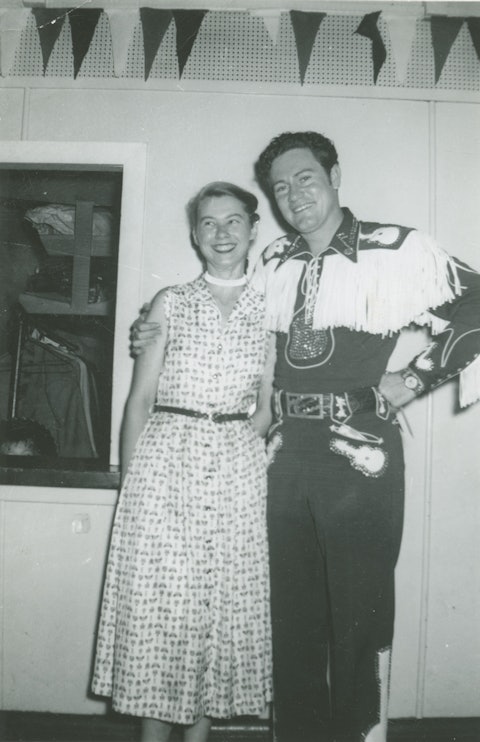
Lefty Frizzell with a fan, c. 1950s.
-
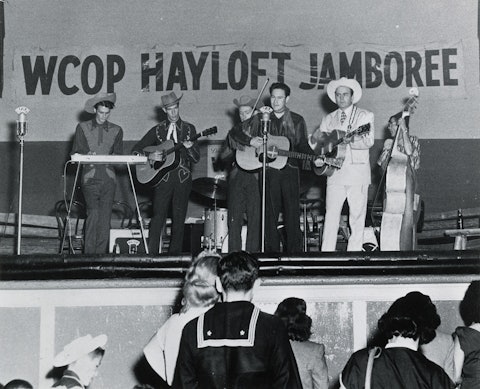
Lefty Frizzell (behind microphone) onstage with band at WCOP Hayloft Jamboree, in Boston, Massachusetts, c. 1950s.
-

Lefty Frizzell performing at the first Jimmie Rodgers Memorial Festival in Meridian, Mississippi, 1953.
-
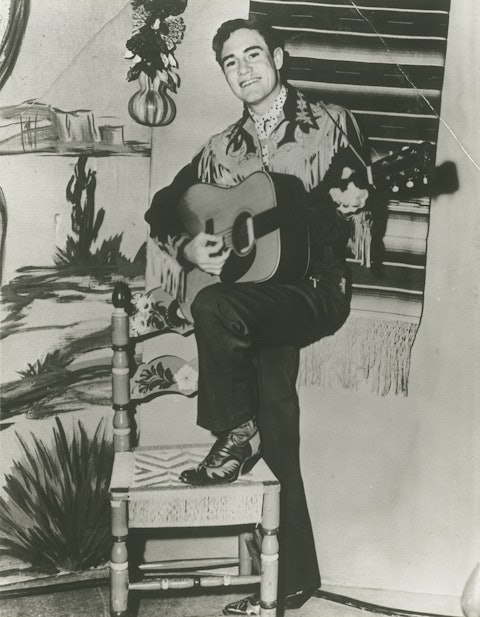
Lefty Frizzell playing an acoustic guitar, 1951.
-
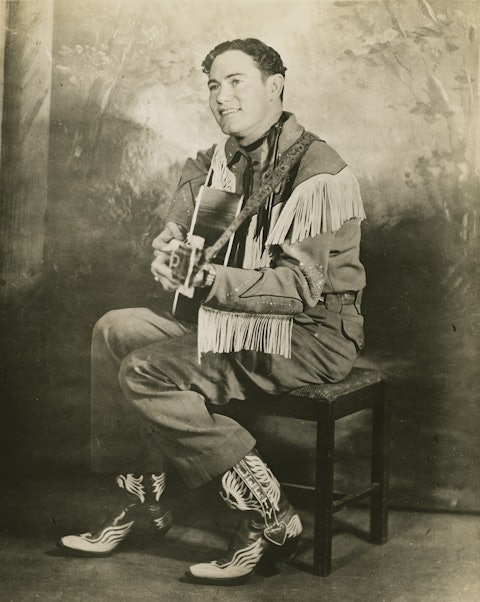
Publicity photo of Lefty Frizzell seated on a bench and playing an acoustic guitar, c. 1951.
-
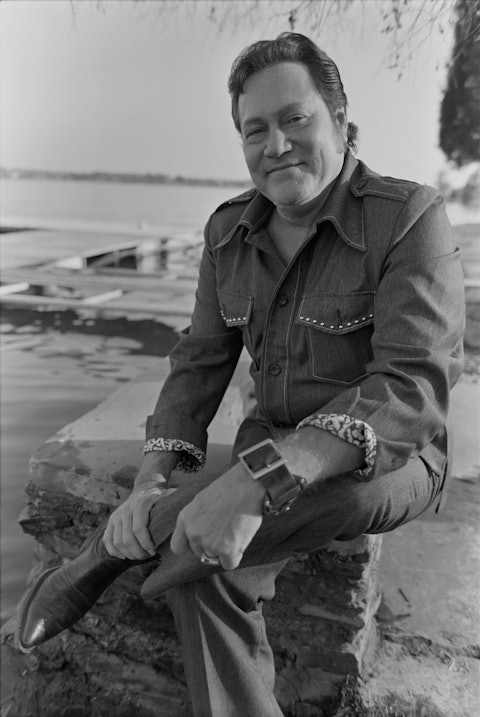
Lefty Frizzell seated on a dock in Hendersonville, Tennessee, 1975. Photo by Raeanne Rubenstein.
-
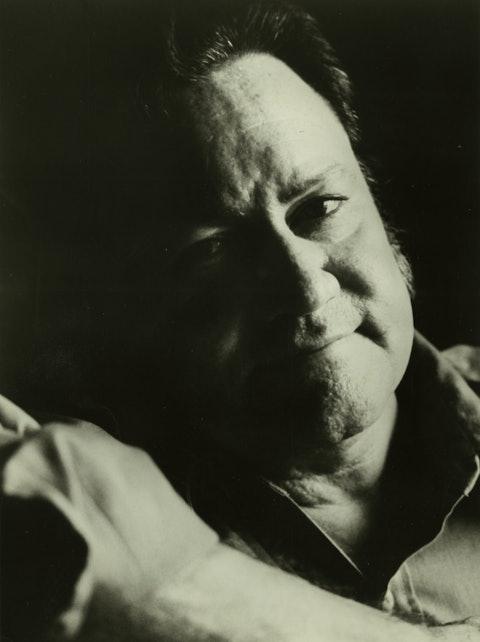
ABC Records promotional photo of Lefty Frizzell, 1973.
-
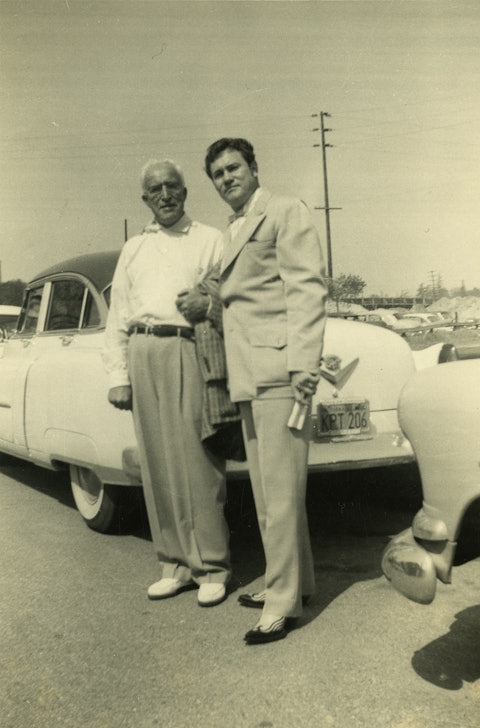
Lefty Frizzell (right) and Columbia producer Art Satherley standing beside a white Cadillac, c. early 1950s.
-
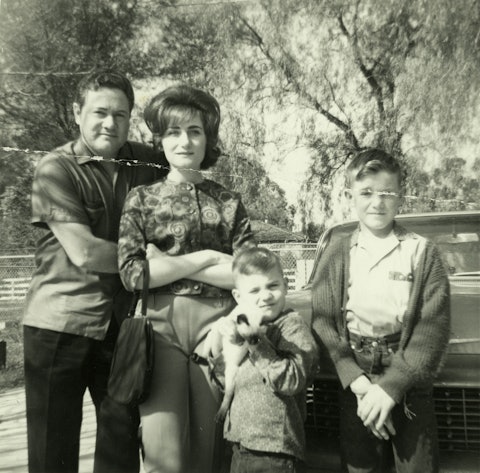
Lefty Frizzell, his wife Alice, and their sons, 1962.
-
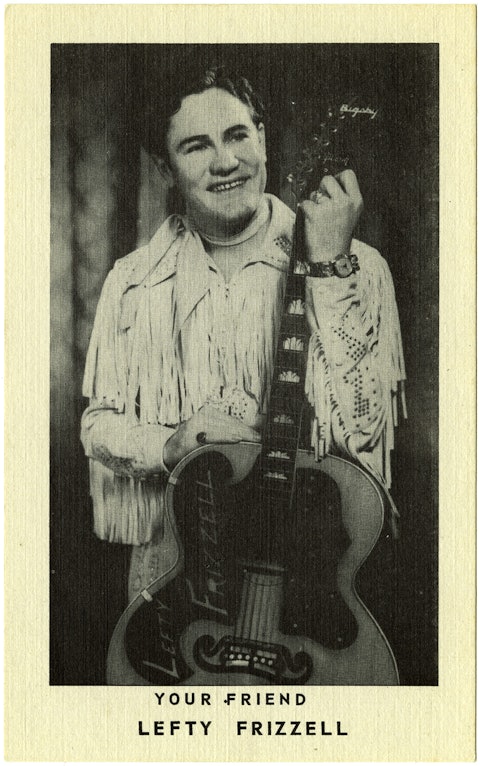
Promotional postcard of Lefty Frizzell holding his custom Bigsby guitar, c. early 1950s.
Later Years in Nashville
In 1962, the Frizzells moved to Nashville, eventually settling north of the city in Hendersonville. The following year, Frizzell recorded the last #1 record of his career, “Saginaw, Michigan.” It topped the charts early in 1964 and was nominated for a Grammy. Then Frizzell’s career again went into decline. His main advocate, producer Don Law, retired from Columbia in 1967, and in 1972, the label dropped Frizzell. He was quickly signed by ABC Records, however, and in December that year, he recorded the first of his ABC sessions.
By that time, Frizzell had befriended songwriter Sanger D. “Whitey” Shafer, with whom he began co-writing. Their collaborations included “That’s the Way Love Goes” and “I Never Go Around Mirrors,” two of the most well-known songs in Frizzell’s catalog. His versions appeared on his 1973 ABC album The Legendary Lefty Frizzell, which was followed a year later by The Classic Style of Lefty Frizzell. Though applauded by critics in the years since, the two albums went largely unnoticed when released.
A heavy drinker all his adult life, Frizzell also suffered from high blood pressure. On July 19, 1975, he suffered a stroke and died later that day.
—Daniel Cooper
Adapted from the Country Music Hall of Fame® and Museum’s Encyclopedia of Country Music, published by Oxford University Press



